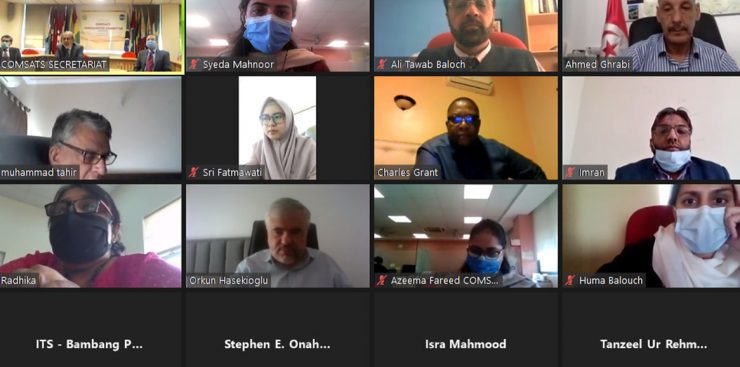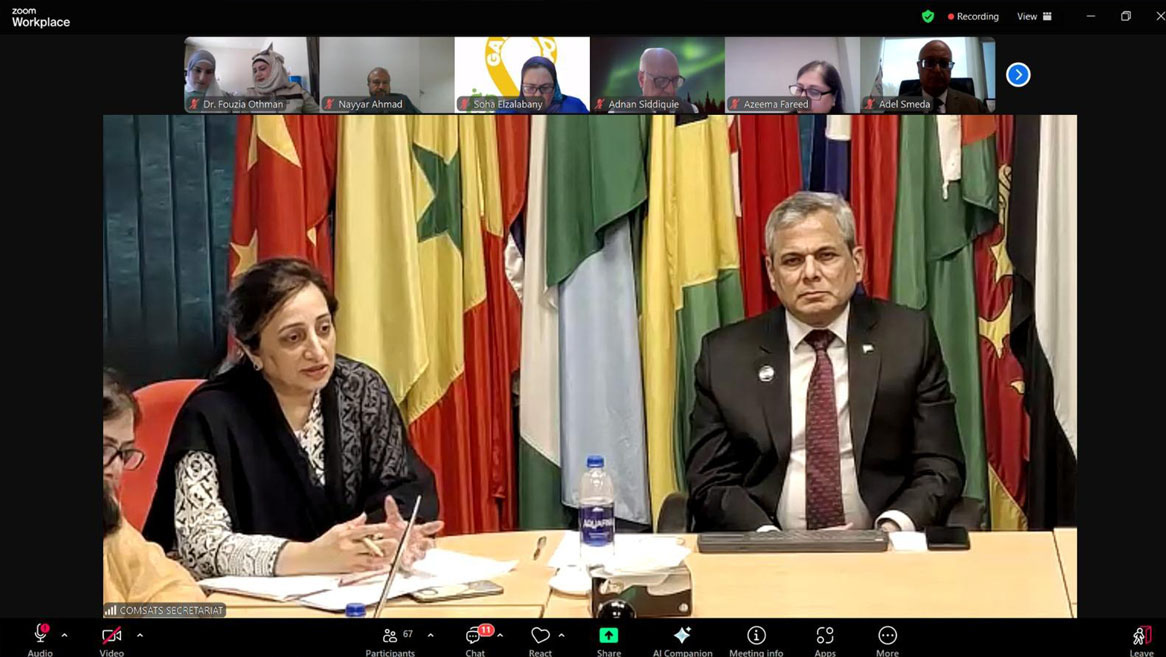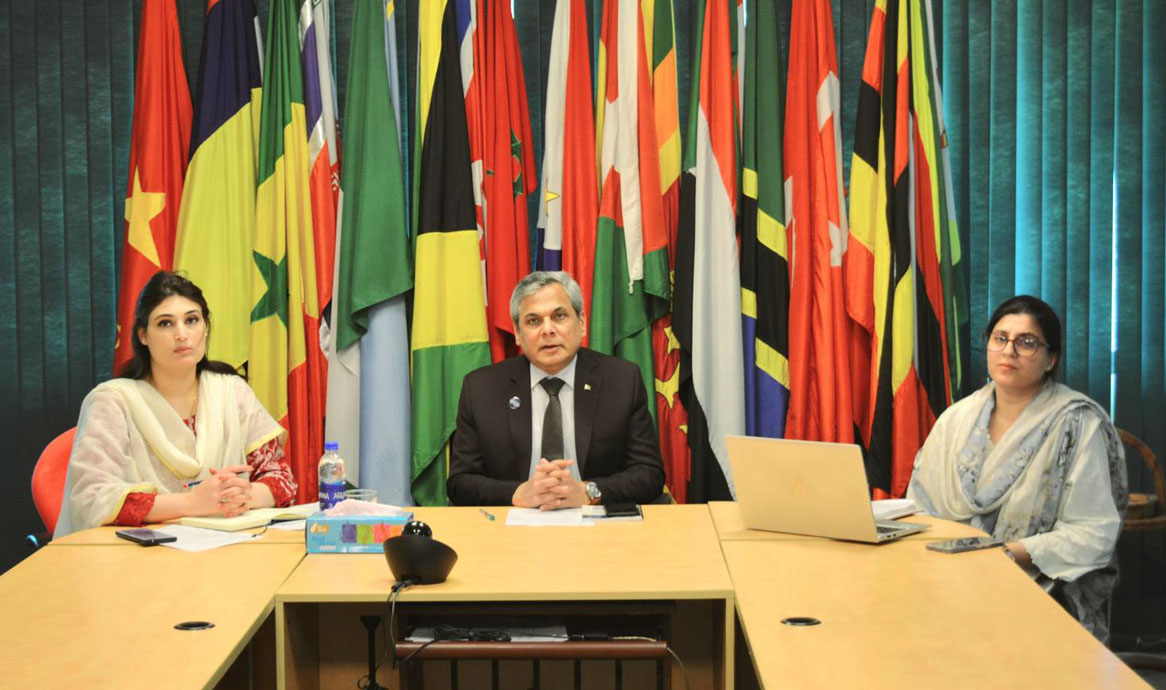As part of the deliberations of the 23rd Coordinating Council meeting virtually held in July 2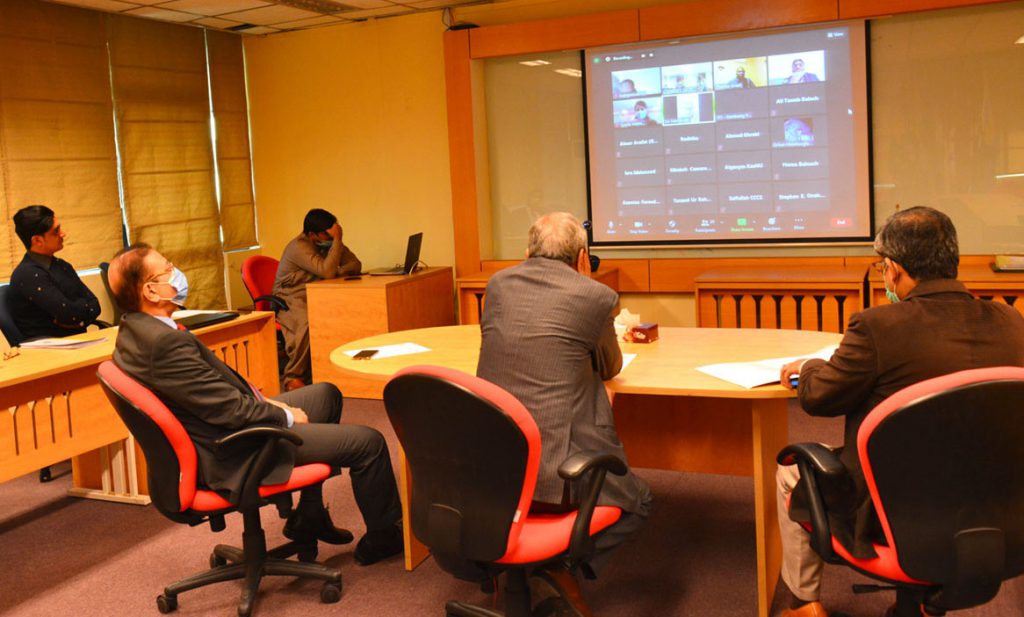 020, the 9th session of virtual presentations by Centres of Excellence was convened on 17th November 2020. The International Centre for Environmental and Nuclear Sciences (ICENS), Jamaica presented its activities and achievements during last one year, as well as future prospects. Participation included 16 officials from 10 Centers of Excellence from Gambia, Jamaica, Jordan, Kazakhstan, Indonesia, Nigeria, Pakistan, Sri Lanka, Tunisia, and Turkey.
020, the 9th session of virtual presentations by Centres of Excellence was convened on 17th November 2020. The International Centre for Environmental and Nuclear Sciences (ICENS), Jamaica presented its activities and achievements during last one year, as well as future prospects. Participation included 16 officials from 10 Centers of Excellence from Gambia, Jamaica, Jordan, Kazakhstan, Indonesia, Nigeria, Pakistan, Sri Lanka, Tunisia, and Turkey.
In the presentation, Mr. Charles N. Grant, Director General, ICENS, inter alia, covered activities, structure, achievements, developments, and international collaborations. He highlighted ICENS’ complementary techniques which comprises two units: Spectro-analytical and X-ray fluorescence. He also shed light on the inductively coupled plasma mass spectrometry (ICP-MS) which has an advantage over existing techniques at ICENS in terms of lower detection limits and the ability to do speciation of elements and isotopic analysis. ICENS research activities on inorganic chemical analysis of Jamaican foods and associated soils to identify possible environmental factors were also underscored.
Under IAEA Coordinated Research Project years (2019-2024) of worth €35,000, ICENS is working on enhancing nuclear analytical techniques to meet the needs of forensic science. The project is aimed to use nuclear analytical techniques such as INAA to help investigations of food forensics/food fraud, potentially adulterated pharmaceuticals and illicit drugs. He informed that the focus of ICENS has been on the analysis of coffee and Cannabis for provenance studies.
Mr. Grant informed the participants that the major problem in the Caribbean is periodic bl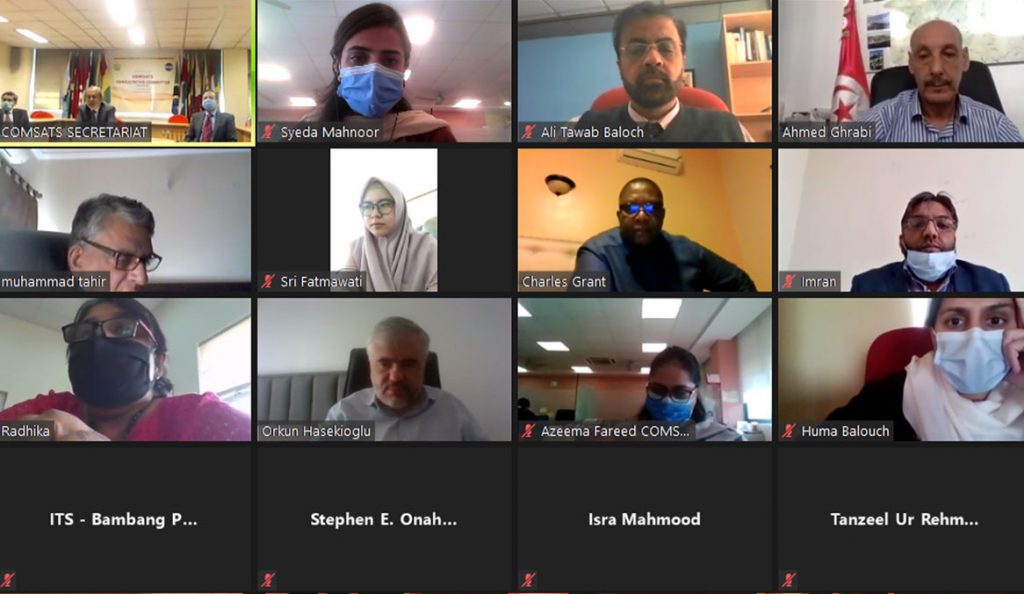 ooms of Sargassum, in the wake of which ICENS started a project entitled Jamaica Marine Environment Project – Sargassum to determine if there is a significant difference in the elemental content of the Sargassum fluitans, Sargassum natans I and S. natans VIII. He informed that the research supports potential uses of the species, including fertilizer, animal feed, food, cosmetics and pharmaceuticals with a view to supporting economic activities and to remove the seaweed from areas where its presence affects established coastal activities.
ooms of Sargassum, in the wake of which ICENS started a project entitled Jamaica Marine Environment Project – Sargassum to determine if there is a significant difference in the elemental content of the Sargassum fluitans, Sargassum natans I and S. natans VIII. He informed that the research supports potential uses of the species, including fertilizer, animal feed, food, cosmetics and pharmaceuticals with a view to supporting economic activities and to remove the seaweed from areas where its presence affects established coastal activities.
Other ICENS’ projects highlighted by Mr. Grant included: Quality Monitoring- Trace Elements & Particulate Matter, Assessing Atmospheric Aerosol Components in Urban Areas to Improve Air Pollution and Climate Change Management (ARCAL CLIV – IAEA Regional Project).
ICENS work on Climate Change and Biogeochemistry focuses on Soil carbon Land-use and land cover change with the following targets to be achieved till 2023: 1) measure soil carbon stock and assess carbon quality across major land-use types island wide (e.g. coastal forest, agricultural lands); 2) survey 50% of major agro-ecological zones across Jamaica; 3) collect soil-based GHG emissions data from 50% of major agro-ecological zones across Jamaica; 4) training in forestry emissions modeling and 5) running of emission models to generate forestry GHG inventory.
While highlighting the potential and future areas of collaborations, Mr. Grant informed that ICENS can collaborate with COMSATS Centres of Excellence and other institutions in member countries in following areas: Environmental Geochemistry, Trace Elements in Air Particulate, Heavy Metal Pollution in Jamaica, Trace elements in animal/human tissue/ Health, Biogeochemical Cycles, Forensics, and Trace and heavy metals in the marine environment.
Some exchanges during the discussion session resulted in expression of interest and work in identification of common areas of work by CERTE, Tunisia, ITS, Indonesia, and RSS, Jordan.

